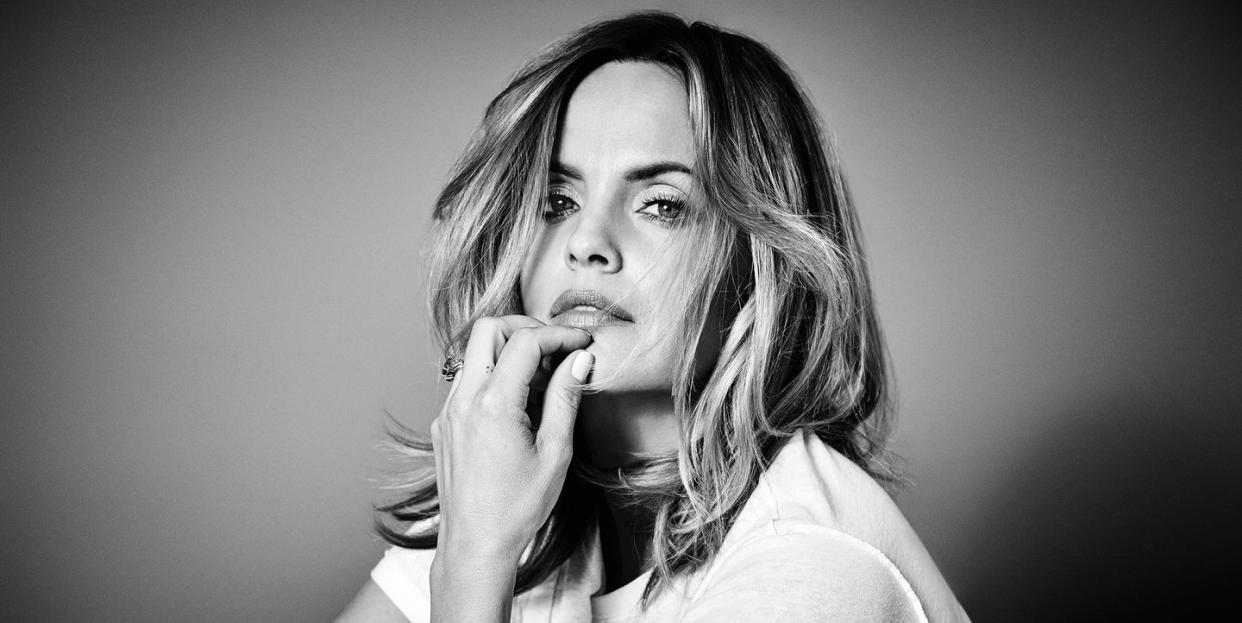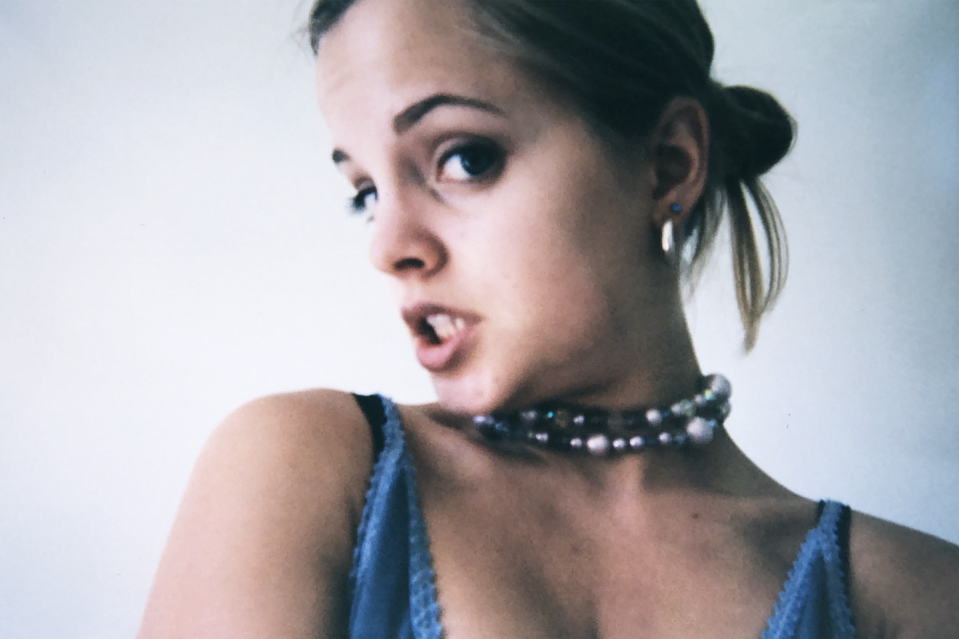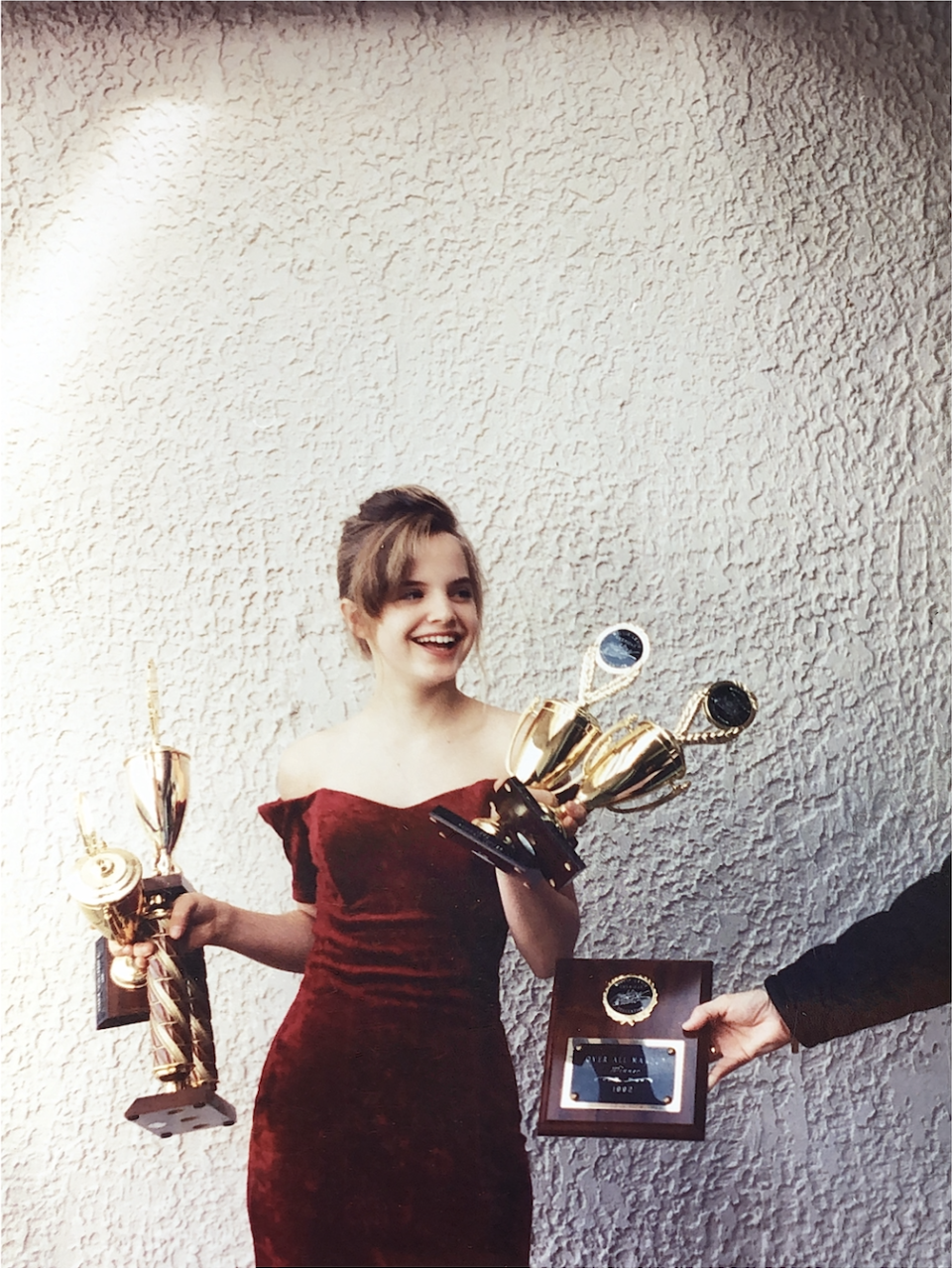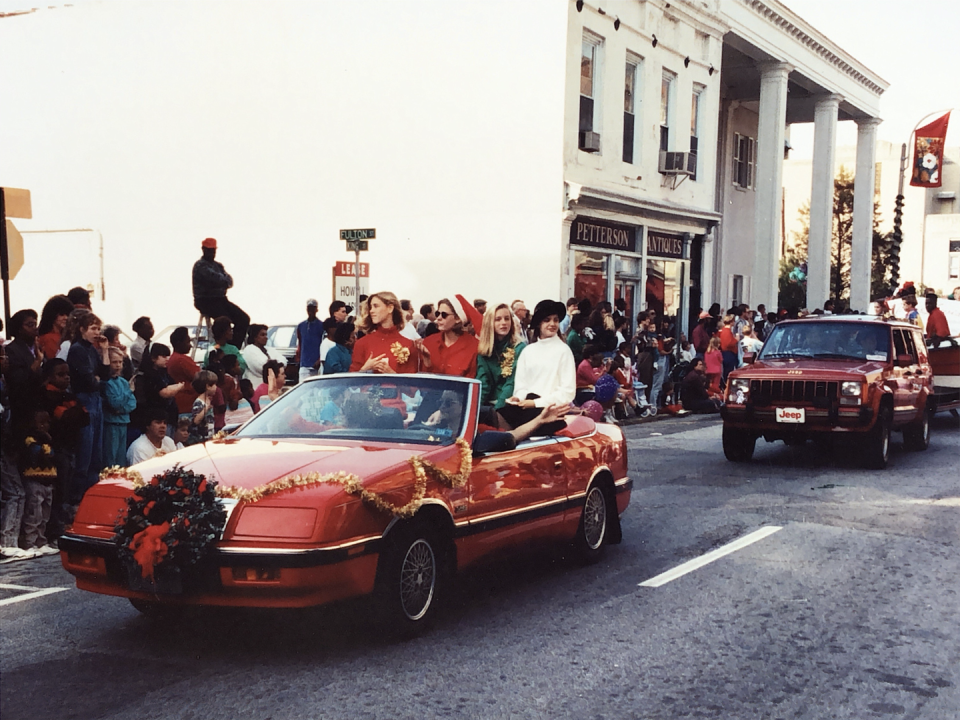Mena Suvari Wants to Be Roasted For Her Past

- Oops!Something went wrong.Please try again later.
- Oops!Something went wrong.Please try again later.
Mena Suvari was a turn-of-the-21st-century icon. In 1999 alone, she starred in the Academy Award-winning drama American Beauty (as a vixen smokescreen for insecure teenage fragility) and the raunchy pop culture phenomenon American Pie (as a choir girl in a committed relationship). Suffice it to say, even as a young actress, she had considerable range.
But it was hardly all fun and games. In her new memoir The Great Peace, published by Hachette today, Suvari recounts how lonely she truly felt during her (often unsupervised) tween and adolescent years that preceded her fame. Between the ages of 12 and 19, she booked nationwide commercials, hooked up with older men (with varying degrees of consent), washed down magic mushrooms with Big Gulps, attended raves with lilac-streaked hair and blue corduroy flares, and snorted meth to numb herself—all before she graduated high school. Meanwhile, her appealing looks and increasing success never betrayed her raw unhappiness. “After I finished seventh grade, I could make myself into whatever [age] was required to get the job done,” she wrote of attending go-sees, the modeling equivalent of auditions. “You want 13? Fine. You want 18? No problem. You want 23? Watch me.”
That age malleability meant she was always contorting herself. “Success in Hollywood made it easy to push the trauma and damage of my past into the background and pretend it didn’t affect me,” Suvari wrote.
Today, fresh-faced and sipping coffee from a white mug scrawled with the word “MOM” while her dog barks enthusiastically in the background, Suvari has pushed past a slew of toxic phases, confronting them with a friendly countenance and calm distance. ELLE.com spoke with the actress and new mother over Zoom about excavating her past for personal growth, reconnecting with Thora Birch, and positioning herself to be roasted for her past.
Given that you grew up in a Hollywood milieu, why did you decide to write a book, rather than a script for a series or movie?
That was originally how this started a couple years ago. I felt like I needed to express myself—I needed to get things out. I went into my office with coffee and I was there for six hours. I just poured everything out, creating what I believed was a treatment. I wanted to share my story, but doubt came in. I felt like “everybody’s got a book already.” Or a perfume, or something. I didn’t ever see myself as that person. I didn’t know how to do that. I felt like I wanted to do something different creatively. So I developed this treatment and have been working with a production company for the last several years to develop this as a series. I registered my treatment, I’ve been working on concept videos, I have the name; it’s something I’ve been pursuing. I’d love to get it out there.
In parallel, I had this red binder that I’d made in the ‘90s. It was yay big [spreads fingers an inch wide] of my poems and stories typed up. I wanted to publish that in and of itself. I shared it with someone, and because there are stories that go along with it, they urged me to tell my story as a memoir. It’s not “inspired by” my life—it’s first-person.
You reference #MeToo as a catalyst in your introduction, but was there a particular incident that prompted you to tell your own story?
It was really a mix of… not just that moment in time, but also how art gave me the opportunity to challenge and learn more about myself. So I’ve been working on projects like that—like Grace and Grit—which were spiritually transforming, and put me in that place of feeling ready. In the book, I use the word “permission.” Maybe I found that permission through how other people shared.

The title, The Great Peace, makes it sound like you’ve found closure on some level. Is that true?
I gave [my early work] that title in ’95-’96. I wanted to publish that binder and make it a poetry book. I’d glued on photos that I’d taken in Burbank, Calif. of how I saw my world, put together with those poems. It carried over because I put that work in the memoir as well.
There’s the cathartic act of putting pen to paper, but then there’s the vulnerability of having it all out there in a public forum. How have you prepared yourself for potential scrutiny?
I have found freedom in talking about these things, and I love having conversations about it. It’s like therapy with the world. What have I done, right?! [Laughs] But I feel better that way, and I feel happy being transparent. It’s my ode to the universe before I die. [Laughs] But we’re here to communicate with one another. It manifested the way that it did; I’m fine with using myself as an example. You can’t please everyone. Why did I lose so much time trying to please? I spent my whole life trying to be something that I thought I needed to be. We don’t have to live in that space. It’s a conversation around fear and holding ourselves back. Maybe that can be shared.
You also co-narrated the audiobook for Lisa Taddeo’s Three Women. Did that or any other books serve as a touchstone for authorship?
There weren’t any particular books, but that experience [of co-narrating the audiobook] reminded me how I felt stifled in those moments, and I was allowing myself to be stifled. Because I wanted to say: “Oh, I understand this too.” It was one of so many moments where I felt I couldn’t talk about that connection. But I wanted to.
In the ’90s and early 2000s, you acted in a lot of films with female costars of a similar age: American Pie, Sugar & Spice, even American Beauty. Was sexual harassment discussed at any point on set?
In the last few years, Thora Birch and I have reconnected and we started to have conversations about this. We were texting yesterday and it was interesting to hear what she thought, how she saw me back then. But we were conditioned to not interact with one another or become friendly with one another, to keep this distance. When I wrote her back, I said: “All I knew was that everyone ignored me.” [Laughs] It was like that with women, apparently. We don’t share, because we’re competing all the time. That was definitely the environment. I also still keep in touch with Sara Marsh—we worked on Sugar & Spice together. She was texting me the other day about the book: “I can’t wait to read it!” And I was thinking Oh no…! [Laughs] I can’t wait to hear her opinion on it.

So you still haven’t talked to anyone about how they perceived you back then? All of that will happen after the book is released?
Yeah. Let’s do it—roast me! [Laughs]
I didn’t mean it like that!
No, I know! [Laughs] In a good way. They’re good conversations to have. It’s not about me saying that certain things are wrong. I was talking with Thora about this yesterday, like, plastic surgery or sexual activity. I just felt like I didn’t have a choice. I didn’t feel like I had the opportunity to decide for myself, that I had that space.
From today’s vantage point, how do you feel about your place in Hollywood?
Recently, I’ve felt compelled to write more. I want to talk about my birth. My baby is 4 months old. I’m in my mom bubble and a little removed from the current times. I’m not even on my Instagram as much as I should be. But that could maybe be a nice next chapter for me, in addition to acting in front of the camera. Do it for a couple of years, see where that goes. I’m in a beautiful, peaceful, calm moment of development. Right now, I’m cultivating all that. I’m not watching any TV!
Looking back at your career, what do you think of your body of work?
It’s the sense of: “Well, now I’m really going to talk about what happened then.” I just went with my timeline and the undercurrents. It’s wild to me how a work opportunity came to me when I needed it. I didn’t talk about it in the final version of the book, but when I worked on Six Feet Under and [screenwriter] Alan Ball came back into my life and offered me that role as a performance artist, I was terrified. I’m an actor, but I don’t know how to stand on a stage by myself in front of others and perform. I was being given these moments to challenge myself. And by doing that, it propelled me and pushed me into a new place. At the time, I was with [my first husband] Robert and starting therapy and taking extension classes at UCLA in anatomy—not even theater!—but also finding myself through my work. That was my midlife crisis, at 21. I had this fame, but I didn’t know who I was or what I wanted to do with my life. I was constantly trying to find myself in this mix.
Is there anything you would do differently or do over? For example, playing a white girl with cornrows as a stand-in for a Black woman in the 2007 movie Stuck would be unthinkable today. And—even though your character wasn’t involved—the webcam scene in American Pie is uncomfortable to watch due to the lack of consent.
The focus is on my personal journey, and feeling that I lost my voice through trauma. I’m bringing in my work to showcase how there was symmetry between my personal life and professional life.

There are images in the book you’ve never shared before. Could you talk about some of those?
The cover photo is by David Needleman, from a shoot I did for the series American Woman. Some people have an energy, and I feel like he captured what no one had ever really seen in me. I felt like I was facing forward, symbolically.
For the older ones, they’re never-before-shared photos from my beginnings up to now… I tried to write down the time at which they happened. When I began modeling, I put a photo of a parade we did in Charleston when I was 12, sitting in a convertible, waving, like: “I’m a model!” [Laughs]
It sounds like you’re a real archivist.
Not necessarily; I lost a lot in moves. But there was a bin in the back of my storage unit, in which I had photos… this lifelong compilation! There were also VHS tapes. How am I going to watch those?! Can you even buy that device anymore? [Laughs] The bin is falling apart, but I could never throw those things away.
You Might Also Like

